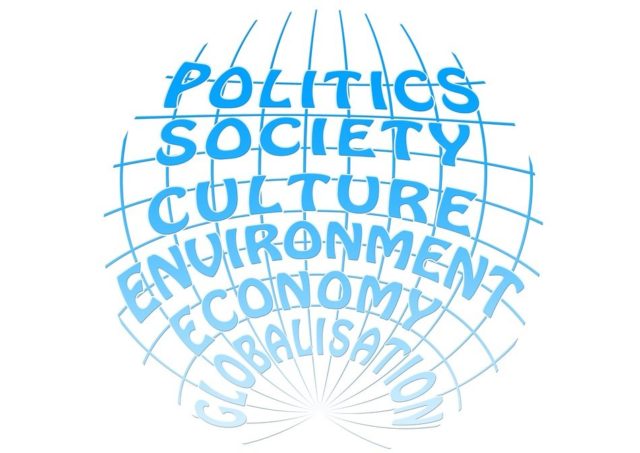In the last nine months, COVID-19 has proved to be unlike any other outbreak the world has seen in the past century. Its impact is beyond health and is expected to last years – if not more. We saw first-hand how ill-prepared we were to deal with the pandemic. Even countries like USA and the UK which were the top two countries by the Global Health Security Index (GHS Index)1 in 2019 did no better than India and Indonesia, our home countries, which ranked much lower.
As medical doctors and PhD students, we wondered what went wrong? Our first reaction, like many senior academics, was to blame politics. It was playing out exactly as in most science-fiction (Sci-Fi) movies – research evidence by scientists being ignored by politicians for narrow parochial gains leading to disastrous consequences.
But as things progressed, we saw leading health agencies coming out with conflicting advice (e.g. face masks)2, making recommendations without consideration of equity (e.g. on social distancing)3 and ignoring emerging evidence (e.g. airborne transmission)4. We also saw how flawed science was brought forward to support contentious decisions (e.g. hydroxychloroquine)5.
The pandemic gave us time to reflect and question hitherto unquestioned “facts” in the global health space. We learnt that the belief that humanity will be best served by keeping science and politics separate is rather naive and simplistic in nature. This belief is wide-spread in academia and global health. This needs to change .While autonomy of researchers and institutions is key, we need more embedding of research institutions into government and public policy departments .
While frontline health workers and scientists are often the most trusted in communities, when it comes to decision making, elected officials, on whom the public have delegated trust, have the final authority to formulate policies.
We need to speak the language of the public, politicians and the media. We need to invest time and contextualise our work with societal realities. Being more in touch with the world beyond our professional circles is imperative to achieve this. “Helicopter views”, broad generalisations and not communicating the uncertainty behind research are not helpful and alienates us from garnering public support. On-demand rapid research units for modelling, evidence synthesis, and implementation research should become the norm, instead of the exception.6 Such units could be embedded within government departments or be in academia, but working in close collaboration with public agencies on a daily basis.
Technical knowledge being concentrated in few elite academic institutions, mostly in high-income countries, often creates structural challenges, and are often not aligned to ground realities. Without understanding of context – research has no meaning. A more decolonised and decentralised knowledge economy, where every country has local capacity, is key to building resilience.

As many countries have shown during the pandemic, research is only one side of the response. Community resilience7, stronger health systems and public institutions are the key to pandemic response. Countries should not remain laissez faire leaving it to private investment and market forces to support pandemic preparedness and response. This has resulted in essential healthcare infrastructure like PPE and ventilators being unavailable even in high income countries. Furthermore, things we often take for granted like housing, clean water and sanitation are still a challenge in large parts of the globe.
Whether we like it or not, this might not be the last pandemic our generation will see. The looming specter of climate change also remains.
COVID-19 has shown us, future global health practitioners, that there is no scope for being a Sci-Fi “hero” scientist who “saves the world”. We rather need to work, day-in and day-out to build stronger health systems. Building trust, reaching out to communities, embedding institutions is not as cool as “disruptive innovation” but is the only sustainable way for humanity to progress.
About the authors :
Anthony Paulo Sunjaya is a medical doctor currently associated with The George Institute for Global Health, UNSW, Australia
Soumyadeep Bhaumik is a medical doctor and international public health specialist , currently associated with The George Institute for Global Health, UNSW, Australia. He is also an Associate Editor, BMJ Global Health.
Competing interests:
The authors are PhD currently students based in HIC universities, but have their medical training in Indonesia and India. They are aware of their obligation to address the issues discussed in the paper. No other competing interests to declare.
Funding:
We did not receive any specific funding for our work. APS is supported by a Scientia PhD scholarship from UNSW Sydney. SB is supported by the University International Postgraduate Award by UNSW Sydney.
References
- Cameron E, Nuzzo J, Bell J. Global Health Security Index: Building Collective Action and Accountability. 2020.
- Sunjaya AP, Jenkins C. Rationale for universal face masks in public against COVID-19. Respirology. 2020;25(7):678-679.
- Mesa Vieira C, Franco OH, Gómez Restrepo C, Abel T. COVID-19: The forgotten priorities of the pandemic. Maturitas. 2020;136:38-41.
- Morawska L, Milton DK. It is Time to Address Airborne Transmission of COVID-19. Clin Infect Dis. 2020.
- Rome BN, Avorn J. Drug Evaluation during the Covid-19 Pandemic. New England Journal of Medicine. 2020;382(24):2282-2284.
- Alliance for Health Policy and Systems Research. Embedded research: An innovative approach to improving immunization rates. 2018; https://www.who.int/alliance-hpsr/news/2018/embedded-hpsr/en/. Accessed 8 June, 2018.
- World Health Organization. Strengthened community resilience and COVID-19 response through community action interventions. World Health Organization;2020.